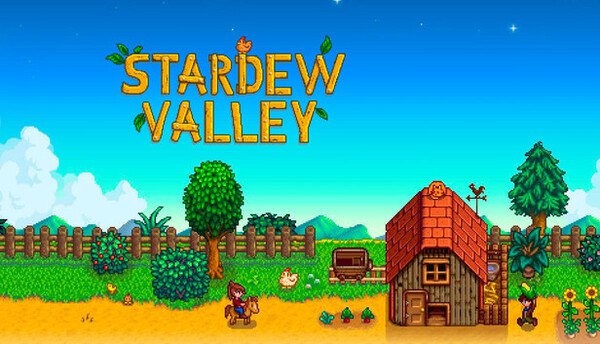Advertisement
Popular Now
Stardew Valley invites players into a delightful world filled with farming, crafting, mining, and relationship-building. As you transition from city life to the serene countryside, the game presents numerous challenges and opportunities for growth. Whether you're a newcomer seeking guidance or a seasoned player aiming to optimize your gameplay, this comprehensive "how-to" guide will explore essential strategies for thriving in Stardew Valley. From effective farming techniques to community engagement, we’ll cover everything you need to create a successful farm and enjoy your time in Pelican Town.
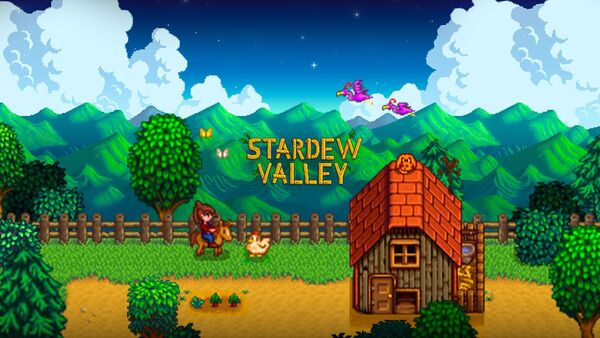 When you start your journey, you’ll be prompted to create your avatar. This customization allows you to express your style and personality.
When you start your journey, you’ll be prompted to create your avatar. This customization allows you to express your style and personality.
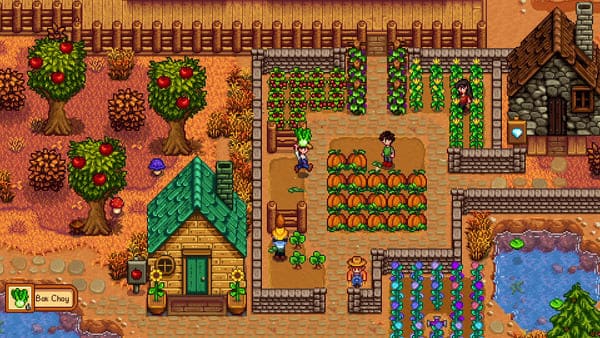 With your character and farm set up, it’s time to dive into the core mechanics of farming in Stardew Valley.
With your character and farm set up, it’s time to dive into the core mechanics of farming in Stardew Valley.

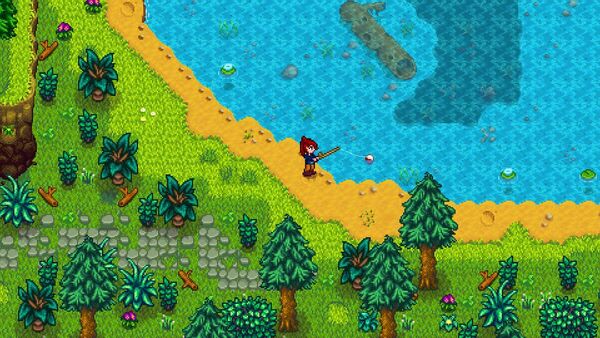
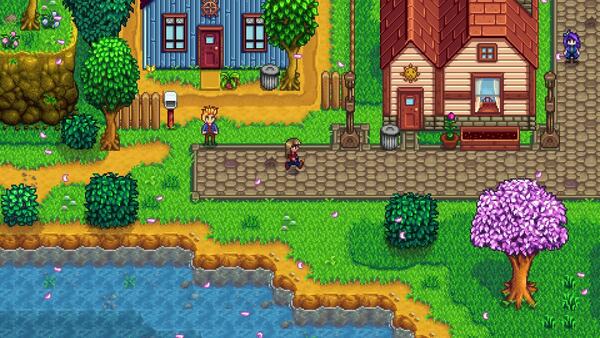
Getting Started: Creating Your Character and Farm
Before diving into the complexities of Stardew Valley, it's crucial to set up your character and choose a suitable farm layout.Step 1: Creating Your Character
 When you start your journey, you’ll be prompted to create your avatar. This customization allows you to express your style and personality.
When you start your journey, you’ll be prompted to create your avatar. This customization allows you to express your style and personality.
Character Customization Options
- Appearance: Choose your character’s skin tone, hair color, and style. You can even select eye color and facial features.
- Outfit: Pick from various clothing options to establish your unique look in Pelican Town.
Step 2: Choosing Your Farm Layout
Once your character is created, you'll select a farm layout. Each layout provides different benefits and challenges.Farm Layout Types
- Standard Farm: The most versatile option, ideal for players who want a balanced mix of crops and animals.
- Riverland Farm: Perfect for fishing enthusiasts, featuring numerous bodies of water.
- Forest Farm: Offers abundant foraging opportunities and a unique landscape to explore.
Understanding the Basics of Farming
 With your character and farm set up, it’s time to dive into the core mechanics of farming in Stardew Valley.
With your character and farm set up, it’s time to dive into the core mechanics of farming in Stardew Valley.
Selecting Crops Wisely
The choice of crops can make or break your farming experience. Different crops have unique growth times, seasons, and profitability.Seasonal Crop Selection
- Spring: Plant potatoes, cauliflower, and strawberries for great returns.
- Summer: Focus on blueberries and melons for ongoing profits.
- Fall: Pumpkins and cranberries are top choices for the autumn harvest.
Planting and Watering Techniques
Proper planting and watering are fundamental to successful farming.Planting Steps

- Tilling the Soil: Use your hoe to prepare the ground for planting.
- Planting Seeds: Select seeds from your inventory and place them in the tilled soil.
- Daily Watering: Make sure to water your crops every day; using sprinklers can automate this task.
Maximizing Crop Yields: Quality and Quantity
To be successful in Stardew Valley, understanding how to maximize both the quality and quantity of your crops is vital.Improving Crop Quality
Crops can be harvested at various quality levels: normal, silver, gold, and iridium. Higher quality crops yield better prices.Tips for Enhancing Quality
- Utilize Fertilizers: Applying fertilizers can improve the likelihood of producing higher-quality crops.
- Level Up Your Farming Skill: As you gain experience, your chances of harvesting better quality crops increase.
Harvesting Your Crops
Efficient harvesting techniques ensure you make the most of your hard work.Harvesting Steps

- Check Crop Status: Ensure that your crops are fully grown before harvesting.
- Using the Right Tools: Utilize your scythe or simply interact with the crops to collect them.
- Deciding What to Do: Store your harvest for future use or sell it right away for quick cash.
Animal Husbandry: Raising Livestock
In addition to crops, raising animals adds another layer of complexity and profit to your farm.Choosing Your Livestock
Different animals provide various products, and selecting the right mix can enhance your farm's profitability.Common Animal Choices
- Chickens: Easy to raise and provide daily eggs.
- Cows: Offer milk but require more resources and care.
- Sheep: Produce wool, which can be spun into valuable products.
Caring for Your Animals
Proper care for your livestock is essential for maximizing productivity.Guidelines for Animal Care

- Feeding: Ensure your animals are fed daily. You can either buy hay or let them graze outside.
- Shelter: Build barns and coops to keep animals safe from the elements.
- Daily Interaction: Pet your animals regularly to increase their happiness and productivity.
Crafting and Cooking: Adding Value to Your Farm
Crafting and cooking can significantly enhance the efficiency and profitability of your farm.Essential Crafting Recipes
Crafting allows you to create valuable items that can improve your farming operations.Key Crafting Items
- Preserves Jar: Turns fruits and vegetables into preserves, increasing their selling price.
- Keg: Ferments fruits into wine or beer for higher profits.
- Cheese Press: Converts milk into cheese, another high-value product.
Cooking for Health and Profit
Cooking meals not only restores energy but can also be sold for a profit.Popular Cooking Recipes
- Vegetable Medley: Restores health and energy, made with seasonal crops.
- Pumpkin Soup: A filling dish that sells for a good price.
- Farmers Lunch: Boosts energy and can be sold for a decent profit.
Building Relationships: Engaging with the Community
Building relationships with the townsfolk is a crucial aspect of Stardew Valley that enriches your gaming experience.Meeting the Villagers
Each NPC has a unique personality, and getting to know them can unlock special events and rewards.Tips for Building Friendships
- Gift Giving: Discover each villager's favorite gifts to boost friendship levels.
- Help with Quests: Completing quests for villagers strengthens relationships and earns you rewards.
- Participate in Festivals: Engaging in seasonal events can help build bonds with multiple NPCs.
Friendship Benefits
As you deepen your relationships, players can unlock various perks.Rewards for Friendship
- Heart Events: Special cutscenes and dialogues that reveal more about the characters.
- Exclusive Recipes: Some villagers share unique recipes based on friendship levels.
- Community Projects: Higher friendship levels can contribute to community goals and unlock benefits.
Mining and Foraging: Resource Gathering
Mining and foraging are essential for gathering valuable resources that support your farming endeavors.Mining Fundamentals
Mining is a great way to acquire ores, gems, and other resources necessary for crafting and upgrading tools.Tips for Successful Mining
- Prepare Supplies: Bring food and health items to sustain you in the mines.
- Upgrade Tools: Invest in better tools to mine more efficiently.
- Explore Different Levels: Each mine level has unique resources and challenges; take the time to explore.
Foraging for Wild Goods
Foraging allows you to gather natural resources that can be sold or used in crafting.Foraging Tips
- Seasonal Variety: Different items are available in each season, so make sure to forage regularly.
- Calendar Awareness: Some forageable items are more abundant during specific times of the year.
- Efficient Gathering: Use tools like your scythe or axe to collect wild items quickly.
Upgrading Tools and Buildings: Enhancing Efficiency
Upgrading tools and buildings is essential for improving your overall efficiency in Stardew Valley.Tool Upgrades
Investing in tool upgrades will make daily tasks easier and more efficient.How to Upgrade Tools
- Visit Clint: Go to the blacksmith to upgrade your tools using ores and gold.
- Choose Wisely: Prioritize upgrading your watering can and hoe first to optimize crop care.
- Aim for Max Level: Each tool has a maximum level; strive to obtain the best tools for maximum efficiency.
Building Upgrades
Upgrading barns, coops, and other farm buildings expands your farming capabilities.Key Building Upgrades
- Barn Upgrades: Allow for more animals and better living conditions.
- Greenhouse: Enables year-round crop growth, maximizing your farming potential.
- Silo: Stores hay for your animals, ensuring a steady food supply.













